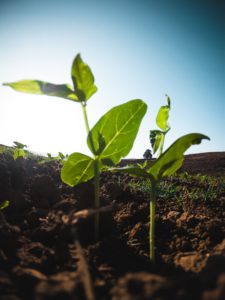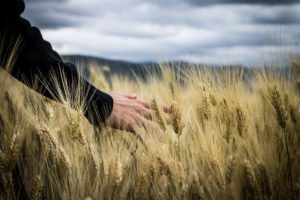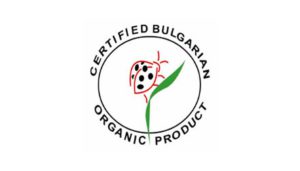Organic agriculture in Bulgaria
Bulgaria is one of Europe’s richest countries in biodiversity. The territory of the country covers parts of the three biogeographical regions Alpine, Black Sea and Continental, although small in area (10,900 km2). The country’s geographic position in the southeastern part of the continent, the complex history of palaeogeography and paleoclima, varied topography and climate, sufficient freshwater resources and proximity to the Black Sea, considerable forest resources, etc. are fundamental and important factors that determine the rich diversity of species, communities and ecosystems.
Bulgaria’s biodiversity is an invaluable asset, an important part of the country’s national identity.
Bulgaria is an agriculturally rich country, particularly on grasslands which has a biodiversity potential. It is also the country with the third largest share within the EU of Natura 2000 (34.5%) (EC 2016f). Natura 2000 is a network of protected areas including the most important and endangered species and ecosystems in Europe.
Bulgaria, situated in a temperate climate zone with influence on the subtropical area, is observed with a very diverse climate, soil, plant attractions and wildlife. The geographical location favors the creation of sustainable organic farming today, there are more than 7000 organic farmers and their production is used worldwide.
As of 2015, Bulgaria is among the largest exporters of organic wine, and since 2014 it is ranked third after Romania and Finland with certified areas for wild fruits, medicinal and aromatic herbs, as well as various types of mushrooms.
Bulgaria is the country with the largest number of bee hives.
For years, Bulgaria has been the world’s largest producer of rose and lavender oil – essential ingredients for bio cosmetics.
Bulgarian organic honey, raspberries, strawberries, hazelnuts, nuts, wheat, lavender oil, rose oil, even industrial hemp – are already world famous. Dairy products with the famous Lactobacillus Bulgaricum, widespread in the Chinese and Japanese markets and extremely well known in the world!
As a result of the fundings under the Rural Development Programs, organic agriculture is becoming attractive to many producers and foreigners due to euro subsidies.
If one wants to become an organic farmer, he must:
- Rent land or buy the land needed;
- Become a farmer and choose his certification body;
- Fill out the application containing the location of the farm, the type of fields, the number of crops, production premises, buildings, machinery;
- Once the control and certification contract has been concluded, the first inspection is carried out.
The process of switching from conventional to organic farming takes several years.
For years, people have come to trust the green leaf – a symbol of European organic farming.
In order to obtain accreditation for the activity, the certification bodies, in turn, are subject to exclusive control. All control bodies are subject to control within the meaning of European Regulation 834 on organic production.
In Bulgaria, monitoring is carried out by a department of the Ministry of Agriculture, which oversees the control bodies. The European Commission also comes and checks our operators.
The symbol that makes organic Bulgarian products recognizable is the ladybug on a green leaf.
The share of organic vegetable production – or cereals, or oilseeds, medicinal and aromatic herbs, or permanent crops, or pastures meadows is growing.
Growth of livestock farms is narrower but still reported due to the requirements for feeding and breeding or organic animals. The number of organic beekeepers is gradually increasing, although severe restrictions on grazing on beekeeping, beekeeping equipment and processing are imposed. Certification is increasing interest to local processors, and bio-products are highly sought after in the European market.
Economic growth in Bulgaria has increased the consumer demand for organic products significantly in the past two years. Urban and higher income consumers perceive organic products as environmentally friendly and healthier and thus increase the attractiveness of organic products for many urban’ lifestyle’ consumers. There have also been diversification of the selection of organic products on the Bulgarian market, allowing more middle-income consumers to purchase organic.
SET UP A COMPANY IN AGRICULTURE IN BULGARIA
More and more foreign investors consider the establishment of an agricultural company in Bulgaria as a result of growing demand for food and beverages which are naturally produced and for Bulgarian traditional products.
There are good natural conditions in the country for the growing of a large number of plants, fruits and vegetables and for livestock farming. Rural development programmes, along with several options for EU funding, have made investment conditions more attractive to foreign investors, and the government provides special incentives to invest in this sector.
Bulgaria welcomes foreign investments in agriculture, but it is advisable for investors to seek professional assistance with regard to establishing a business according to local laws.
BG Advise can help you open a company in the agricultural sector.
The food and agriculture sector in Bulgaria is important and attracts significant foreign investment. International firms target key industries like food, beverages, dairy, fruits and vegetables.
Roughly 50% of Bulgaria has a farm-friendly territory and good natural conditions to produce a wide variety of fruits, vegetables and crops. It is also advantageous for food and beverage farmers because of the geographic location of the country: it offers easy access to the rest of Europe, Russia and the Middle East.
Bulgaria has implemented EU food safety and manufacturing standards. Local regulation for the production of food and beverages allows companies to obtain special permits and operating licences.
Our team is able to assist you in providing you with information on the government incentives available and the laws and regulations currently in effect.
Contact us for more information.








